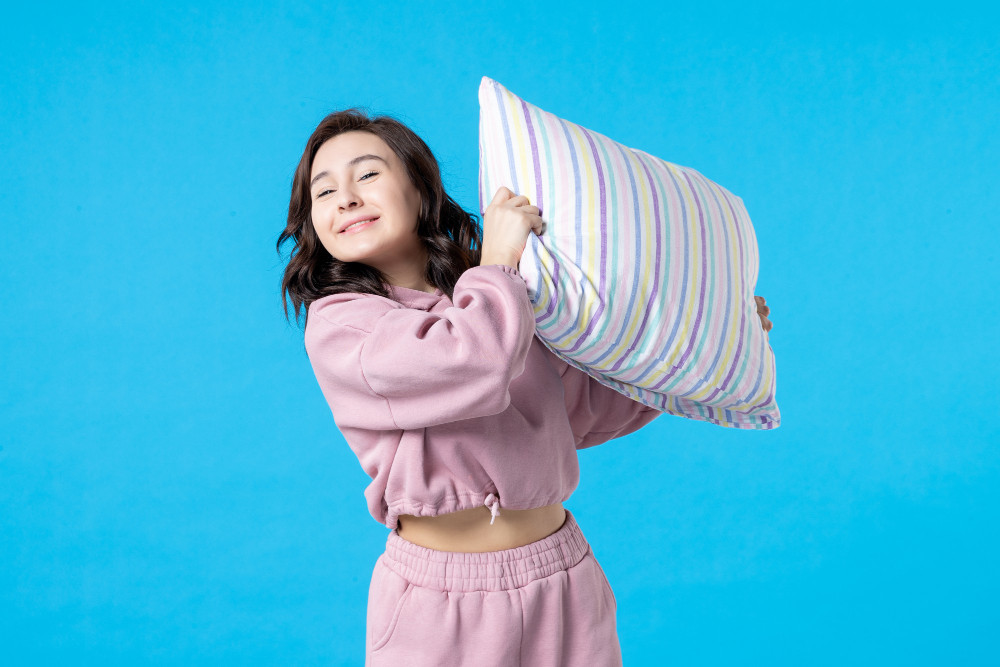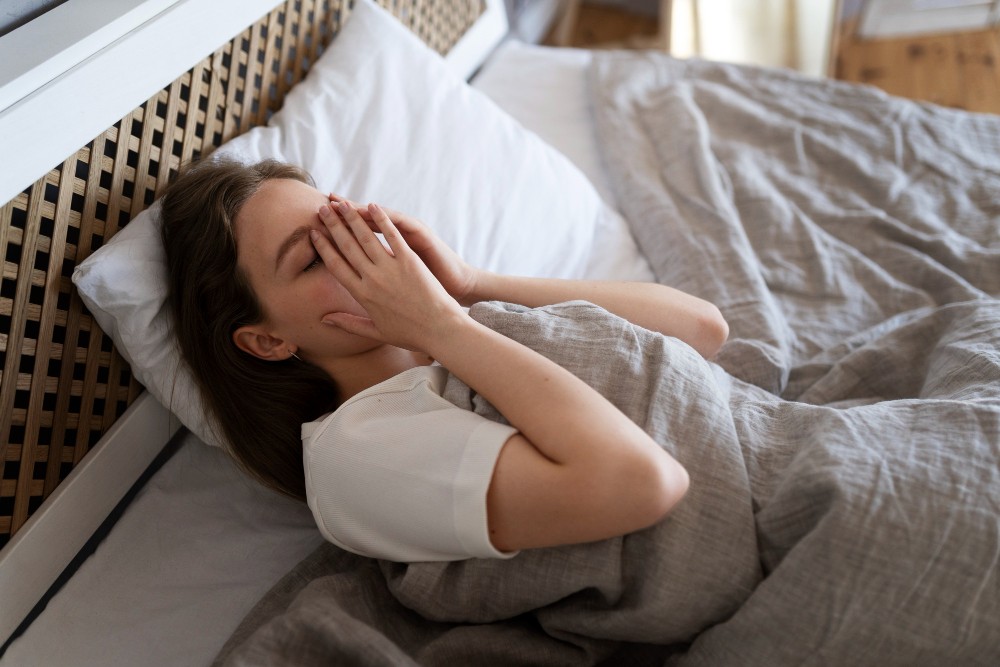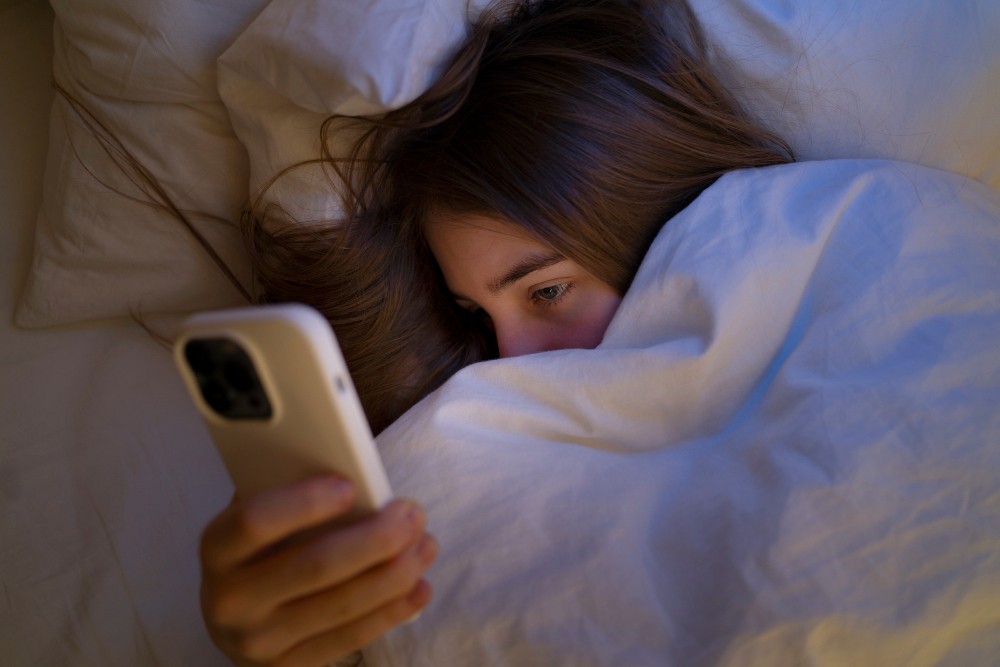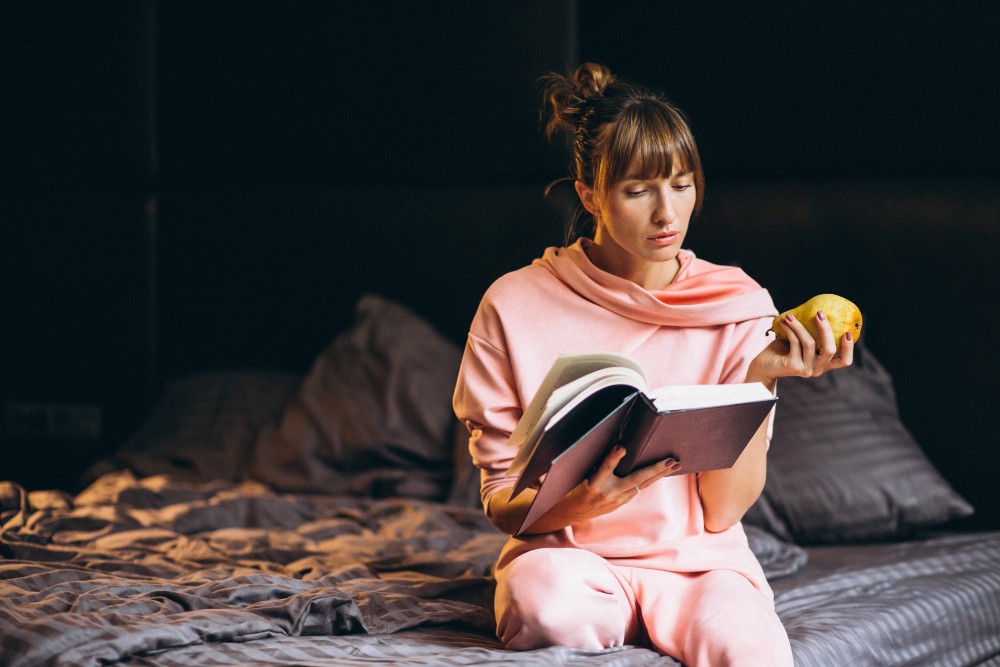Setiap orang memiliki preferensi berbeda ketika tidur. Beberapa orang lebih menyukai tidur menggunakan bantal yang tebal, tipis, dan tidak sedikit yang lebih menyukai tidur tanpa bantal. Lantas bagaimana menurut para ahli, benarkah tidur tanpa bantal lebih baik bagi kesehatan?
Manfaat Tidur Tanpa Bantal
Bantal telah lama digunakan sebagai perlengkapan yang dibutuhkan saat tidur. Fungsi bantal saat tidur utamanya untuk menyangga leher dan kepala agar leher tidak tegang sehingga Anda dapat tidur dengan nyaman. Namun bagi sebagian orang, tidur menggunakan bantal justru terasa lebih nyaman.
Beberapa manfaat tidur tanpa bantal di antaranya:
Mencegah nyeri leher
Bantal digunakan saat tidur agar posisi leher tetap rileks saat tidur. Namun jika bantal yang Anda gunakan terlalu empuk atau terlalu tebal dan tinggi, leher dapat terdorong ke atas atau ke bawah sehingga dapat menyebabkan nyeri pada bagian leher.
Berbeda jika Anda tidur tanpa bantal, maka kepala akan beristirahat dalam posisi netral sehingga tidak memberikan tekanan pada otot leher dan mencegah nyeri leher. Bagi orang yang biasa tidur tengkurap, bantal dapat membantu mengganjal kepala dan leher sehingga tidak menimbulkan nyeri saat bangun tidur.
Mengurangi risiko alergi dan gejala asma
Tidur dengan bantal atau sarung bantal yang tidak diganti secara teratur dapat memicu penumpukan debu, kotoran dan partikel lainnya. Jika partikel ini dihirup saat tidur, kondisi ini dapat memperparah alergi dan gejala asma.
Mencegah kerutan dan membuat rambut lebih sehat
Saat tidur, posisi wajah yang menempel pada bantal dapat menimbulkan banyak gesekan pada wajah jika dibandingkan tidur tanpa bantal. Kebiasaan tidur menyamping atau tidur tengkurap dengan menempelkan wajah pada bantal berisiko menimbulkan kerutan pada wajah. Selain kerutan, posisi tidur tersebut juga dapat menyebabkan jerawat.
Beberapa pendapat lain menyebutkan bahwa tidur dengan sarung bantal tertentu dapat merusak rambut. Pendapat ini berdasarkan pada bahan katun yang menjadi bahan sarung bantal dapat menimbulkan lebih banyak gesekan dan menyerap minyak pelindung rambut.
Kondisi ini membuat banyak orang lebih menyukai tidur tanpa bantal. Jika Anda merasa memiliki masalah jerawat, kerutan, rambut kering dan mudah patah karena bantal atau sarung bantal, Anda bisa mencoba tidur tanpa bantal atau ganti sarung bantal Anda dan jaga kebersihan perlengkapan tidur secara rutin.
Baca Juga: Tidur dengan Lampu Menyala atau Mati, Mana yang Lebih Baik bagi Kesehatan?
Efek Samping Tidur Tanpa Bantal
Meskipun memiliki sejumlah manfaat tidur tanpa bantal, kebiasaan tidur ini juga memiliki efek samping yang perlu Anda pertimbangkan. Beberapa efek samping tidur tanpa bantal antara lain:
Postur tubuh yang buruk
Saat Anda tidur tengkurap, tidur tanpa bantal dapat membuat tulang belakang Anda lebih selaras. Namun posisi ini sebenarnya tidak membuat tulang belakang Anda berada dalam posisi netral. Ketika Anda tidur tengkurap, sebagian besar berat badan akan berada di bagian tengan tubuh sehingga menyebabkan otot tegang. Selain menyebabkan nyeri punggung, cara tidur seperti ini juga dapat menyebabkan postur tubuh yang buruk.
Sakit leher
Tidur tanpa bantal juga berisiko menyebabkan sakit leher. Jika Anda suka tidur tengkurap, hal ini dapat membuat sendi dan otot leher Anda tegang, sehingga menyebabkan rasa sakit pada leher. Tidur tanpa bantal juga menyebabkan tekanan pada otot leher tidak merata sehingga Anda dapat terbangun dengan nyeri leher, kaku dan sakit kepala.
Baca Juga: Badan Capek Tapi Susah Tidur, Apa Penyebabnya?
Tidur tanpa bantal bisa jadi memberi manfaat bagi sebagian orang. Namun cara tidur ini tidak dianjurkan bagi Anda yang biasa tidur tengkurap, menyamping, atau memiliki masalah tulang belakang seperti skoliosis. Masih dibutuhkan penelitian lebih lanjut mengenai efek tidur tanpa bantal bagi kesehatan, namun para ahli mengungkapkan bahwa posisi tidur ini tidak direkomendasikan untuk semua orang.
Jika Anda memiliki masalah sakit leher setiap bangun tidur atau masalah kesehatan lain akibat posisi tidur dan bantal, sebaiknya periksakan ke dokter. Anda juga bisa memanfaatkan fitur konsultasi pada aplikasi Ai Care yang dapat diunduh di ponsel.
Mau tahu tips dan trik kesehatan, pertolongan pertama, dan home remedies lainnya? Cek di sini, ya!
- dr. Monica Salim
Toshi, N. (2024). Sleeping Without a Pillow: Is It Good or Bad?. Available from: https://pharmeasy.in/blog/benefits-of-sleeping-without-a-pillow/#
Noyed, D.; Wright, H. (2023). Sleeping Without a Pillow. Available from: https://www.sleepfoundation.org/best-pillows/sleeping-without-a-pillow
Nunez, K. (2019). Is Sleeping Without a Pillow Good or Bad for Your Health?. Available from: https://www.healthline.com/health/sleeping-without-a-pillow











